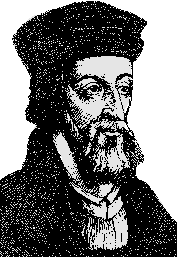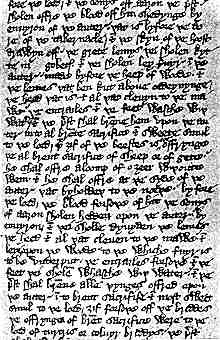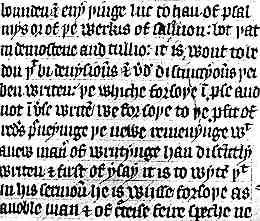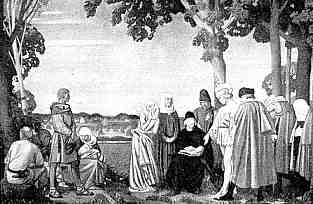
That the sacrament of Baptem doon in water in forme custumed in the Churche is nother necessarie ne vailable to mannys salvacion.
Also that confession shuld oonly be made to God, and to noon other prest.
Also that only consent betuxe man and woman, with consent of the frendys of bothe parties, suffiseth for matrimony, withoute expressyng of wordis or solennizacion in churche.
Also that every Cristen man is a prest.
Also that the pope of Roome is Antecrist, and other prelates and persones of the Churche ben disciples of Antecrist.
Also that no man is bounde to kepe the holydays, but that it is leful everybody to do all bodyly werkes on Sundays and other festival days boden be the Churche.
Also that no man is bounde to offre in churches.
Also that no man is bounde to paye mortuaries to churches, for suche payng of mortuaries and other thinges to the Churche makyn prestes proude.
Also that no worship shuld be do to ony ymages, but that all ymages owyn to be destroied and do away.
Also that holy water and holy bred ben of noon vertu, and that it were better prestes to halwe wellis and flodis ordeyned for mannys mete and drynk than to blesse water in churche whiche men springe on here clokes.
Also that every prayer shuld oonly be made unto God, and to noon other seynt.
Also that commune blessyng that men use and make with here right hand, it availeth to nothing elles but to skere away flies.
Also that in no maner it is lefull to sle a man, nether be processe of lawe to dampne a man that is gulty of thefte or of manslawght.
Also that it is not leful in ony case to swere ne to lye.
Also that no pilgrimage shuld be do but oonly to pore puple.



If you are looking at this page without frames, there is more information about medieval writing to be found by going to the home page (framed) or the site map (no frames).